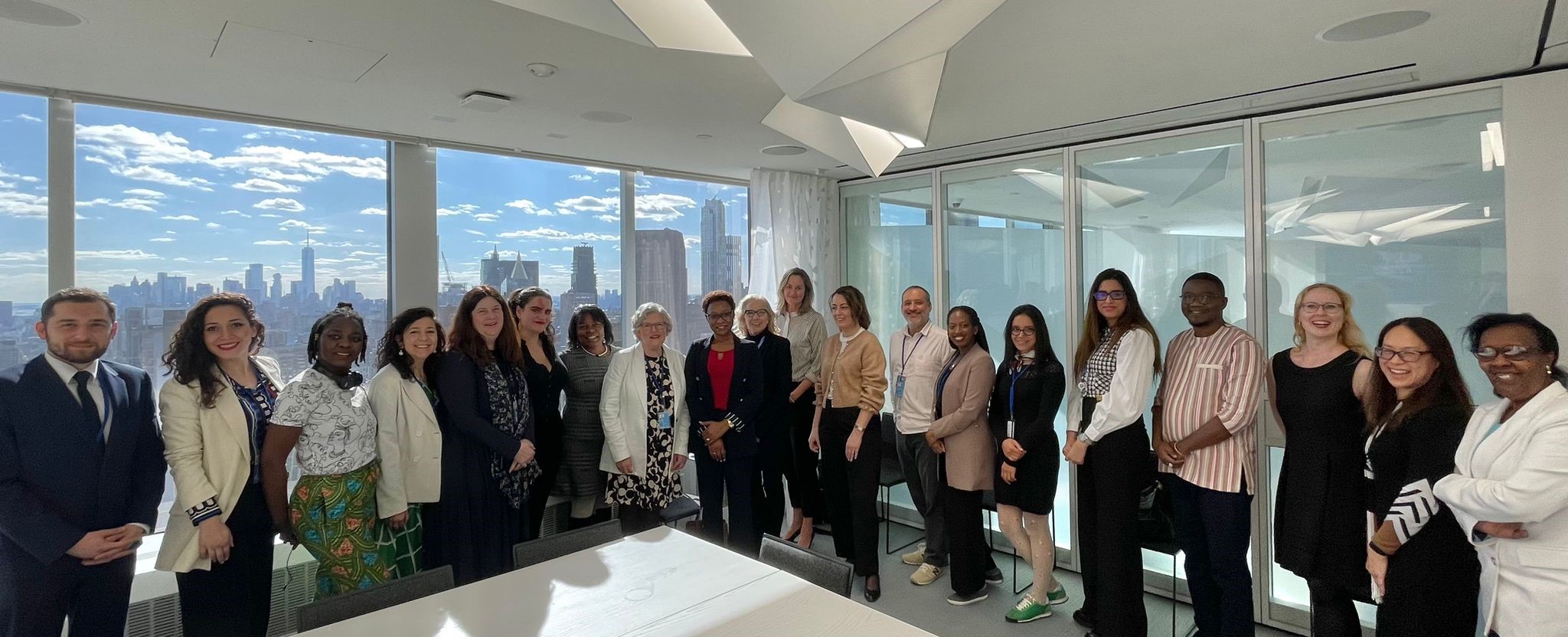Finland convened first in-person meeting of Action Coalition on Technology and Innovation for Gender Equality
The priority theme of the 67th session of the Commission on the Status of Women (CSW), held in New York from 6 to 17 March 2023, was technology, innovation and education. The theme of technology and gender equality is important for Finland, and Finland is one of the leaders of the Action Coalition on Technology and Innovation for Gender Equality, which is part the Generation Equality Forum, a global campaign led by UN Women. The Action Coalition had their first in-person meeting in connection with the CSW session. In addition, Finland organised a high-level side event on why data is critical for gender equality.

The Action Coalition on Technology and Innovation for Gender Equality was launched in 2021 and has since worked remotely. The Action Coalition leaders are Finland, Chile, Rwanda and Tunisia; the UN agencies UNICEF and the International Telecommunication Union (ITU); the companies Microsoft, Salesforce and Koç Holding; Rockefeller Foundation; and the civil society representatives A+ Alliance, Global Fund for Women, Digital Grassroots and Social Builder.
Finland’s Permanent Representative to the UN, Ambassador Elina Kalkku opened the Action Coalition meeting and hoped for continued cooperation in international forums. Minister of Equality Affairs Thomas Blomqvist reminded the Action Coalition that currently, Generation Equality is the world’s biggest process to promote gender equality. The Action Coalition has ambitious goals. By 2026, it aims to reduce by half the gender digital divide, to increase investments towards feminist technology and innovation by 50%, to double the proportion of women working in technology and innovation, and to have a majority of countries and technology companies demonstrating accountability in preventing online gender-based violence. The last mentioned goal is also a priority for Finland.
Rwanda’s Minister of Gender and Family Promotion, Professor Jeannette Bayisenge recounted the work done in Rwanda to close the gender digital divide, to increase the number of girls in the science, technology, engineering and mathematics (STEM) fields and to eradicate online gender-based violence.
Different parties explained their priorities and activities in the meeting discussions. For example, the International Telecommunication Union (ITU) is working towards gender mainstreaming in digitalisation policies. They have recently published a guide on gender mainstreaming, which is already being implemented in different countries. There is plenty of work left, as only some 20 countries in the world have introduced a gender-responsive digital policy.
The most important outcome of the meeting was the desire and need to intensify cooperation to achieve the Action Coalition’s goals. The Action Coalition’s work had a significant impact on the session of the Commission on the Status of Women (CSW), as the report of the UN Secretary-General that provided background information for the session was based on a policy paper negotiated by the Action Coalition.

Finland organised a high-level side event on why data is critical for gender equality. UN Assistant Secretary-General for Human Rights Ilze Brands Kehris spoke at the side event and drew attention to the massive and rapid changes the digital transformation has introduced into people’s daily lives and into their opportunities to participate, express opinions, come together and get education. At the same time, technology poses significant risks and threats to human rights and democracy. The majority of existing technology was designed by men for men, and algorithms repeat existing unequal structures. That is why the OHCHR is calling for a human rights-based approach to data.
UN Secretary-General’s Envoy on Technology Amandeep Singh Gill said that data is at times badly distorted. We know what great men of history ate for dinner, but we know very little about their less famous contemporaries. If we want gender equality, we need more data and more symmetric data, especially. Gill referred to the example mentioned in the concept paper for the meeting showing that car safety testing uses only male crash dummies. This is a recent example of how data distortion can expose women to risk of injury or even to risk of death.
Deputy Executive Director of UN Women Åsa Regnér pointed out that, contrary to popular belief, women and technology are not separate in today’s world. For example, hospitals use state-of-the-art technology, and the best experts of their use and development needs are nurses. Big data raise questions of privacy, data ownership, inequality, security, and data management.
Commissioner for International Partnerships Jutta Urpilainen addressed the side event in a video message. The EU is committed to reducing the gender digital divide in connections and skills in line with the EU Gender Equality Strategy. The Digital for Development (D4D) Hub has launched a number of initiatives, and one of the Hub’s working groups is dedicated to promoting gender equality in digital transformation.
Silas Ngayaboshya, Director-General of Gender Promotion and Women Empowerment at Rwanda’s Ministry of Gender and Family Promotion, reminded the audience that data must be broken down by gender. The aim must be to reform gender structures and that requires close analysis of and changes to the existing power structures. Anita Peña Saavedra Head of the International Affairs Department at Chile’s Ministry of Women and Gender Equality, spoke of the need to get more women into data management and into technology industries as a whole. Chile and other Latin American countries have been collaborating systematically towards this end.
Kate Behncken, Corporate Vice President at Microsoft Philanthropies, remarked that data is critical for promoting gender equality and for identifying root causes of inequality. Data is needed for measuring progress, and it is needed as a basis for policies and as a way to keep organisations honest and accountable. Caitlin Kraft-Buchman, Co-founder of the network A+ Alliance, said that technology offers unprecedented opportunities for promoting gender equality. This work must be both cross-disciplinary and multidisciplinary. Technology is too important for leaving it to engineers alone.
